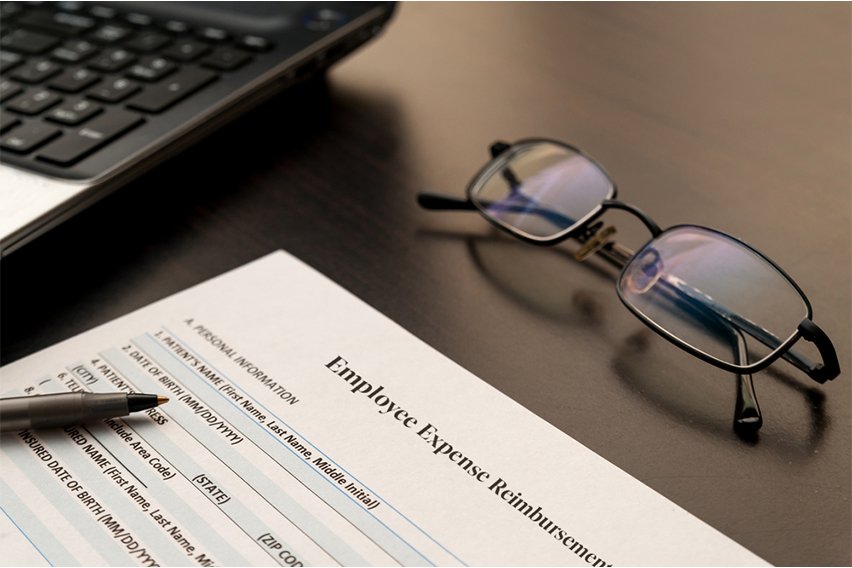20 Non-Deductible Expenses That Businesses Can’t Write Off

Non-deductible expenses refer to any business-related costs that are not allowed to be deducted from your business tax returns. These costs can’t be claimed in order to lower the amount you owe in income tax for the year—claiming them anyway can lead to issues from the Internal Revenue Service (IRS), including fees, tax discrepancies, or even an audit.
Non-deductible expenses are reported on IRS Schedule K-1, Box 18, Code C, details which are particularly important for partnerships. Non-deductible expenses vary by state, so it’s important to follow your local guidelines. In this guide, we’ll go over 20 tax deductions businesses can’t write off.
Table of Contents
- Political Contributions
- Gifts
- Travel Expenses
- Commuting Expenses
- Meals
- Personal Expenses
- Anything Illegal
- Capital Expenses
- Fines and Penalties
- Club Memberships
- Legal Fees
- Donations
- Entertainment Expenses
- Insurance
- Adoption Expenses
- Taxes
- Babysitter Fees
- Business Clothes
- Demolition Expenses or Losses
- Lobbying Expenses
- Effortlessly Track Your Small Business Expenses with FreshBooks
Here is a breakdown of some of the most common non-deductible business expenses.
1. Political Contributions
If you feel passionate about supporting a particular candidate, you might choose to make political contributions to their campaign. They may support your industry or have plans to invest in your industry if elected. While it’s great to get involved with politics, any political contribution you make is a non-deductible expense from federal income taxes.

2. Gifts
It’s common for businesses to give gifts to potential clients or business partners. You want to show your appreciation in order to maintain a strong business relationship in the future. Businesses, however, must keep in mind that there is a limit to how much you can spend on a gift you are giving someone.
You can only deduct up to $25 for business-related gifts. Anything more expensive would be a non-deductible expense, meaning you would have to pay for an expensive gift using your own money.
3. Travel Expenses
Traveling for business can be common depending on the industry that you are in. When you do travel for business, the majority of your expenses are deductible. Travel costs, like fuel, hotel accommodation, and meals are usually deductible.
However, if you bring a friend, spouse, or partner with you, then their expenses are not covered or deductible. If anyone is traveling with you who doesn’t work for the company, any incidental expenses they incur will have to be paid out-of-pocket, and can’t be listed as a deductible expense for the business.
4. Commuting Expenses
Do you drive your personal car to and from work every day or take public transportation? Commuting costs to and from work each day are non-deductible expenses. That said, if you have to travel to see a client or for a work-related meeting during business hours, that could be a deductible expense—provided all mileage reported and reimbursed begins and ends at your place of work.
5. Meals
If you’re taking a business trip, your meal costs are usually considered business expenses. But, if you wanted to take your team or employees out for lunch for team bonding, that cost might not be deductible.
For example, if you are going to entertain a potential client at dinner for future business purposes, you can usually deduct that expense. But if you and a colleague just go to lunch together once a week, that would be considered a non-deductible expense.
6. Personal Expenses
Ordinary expenses related to personal or family use are nondeductible expenses. This includes things like personal vehicle expenses outside of business hours, as well as the cost of having a personal cell phone. Essentially, if it isn’t needed for your work, these expenses can’t be deducted from your business taxes.
Certain family expenses may overlap with business, such as for self-employed business owners using a personal vehicle. You’ll have to break down the business and personal usage of this vehicle when making deductions.
7. Anything Illegal
You also can’t deduct any expenses that might be considered to be illegal activities. Things like gambling losses wouldn’t be considered an expense, for example. You can seek legal advice if you need any more information. Generally speaking, if you wouldn’t list profits from an activity as legal income on your tax return, you can’t list losses from it as a deduction.
8. Capital Expenses
Capital expenses are costs needed to launch your business which will benefit you for more than a year. These are usually big purchases such as vehicles, land, office furniture, and franchise rights. You can deduct some startup costs and depreciation in some cases, but capital expenditure is not tax deductible for businesses.
9. Fines and Penalties
Businesses can incur fines and penalties from a number of sources. One of the most common is late fees on state and federal tax returns. Unfortunately, these costs are non-deductible business expenses. The same goes for such expenses as safety law violation fees, parking tickets, or any other fines and penalties your business might incur.
10. Club Memberships
Many business owners join various clubs for advantages when traveling or to gain new networking opportunities. While these can be business-related expenses with a valid professional purpose, business owners can’t deduct membership fees for hotel clubs, country clubs, and social clubs from their income taxes.
11. Legal Fees
Some legal fees can be deducted from your taxes, but not all. If you consult with a lawyer when purchasing property for the business, for example, you won’t be allowed to deduct those fees from your taxes.
Legal fees can only be a tax-deductible business expense if they’re considered ‘ordinary and necessary’ to business operations, such as if you’re negotiating a contract with a vendor.
12. Donations
This can be confusing because charitable contributions are considered tax-deductible for individuals filing their personal income tax returns. For most businesses, however, charitable contributions are considered non-deductible.
Sole proprietors can’t claim donations as deductions either, because their taxes are filed with a Schedule C form. So if you were to deduct a donation as a sole proprietor, you would be paying for a personal expense with business funds in the eyes of the IRS.
13. Entertainment Expenses
After the 2017 Tax Cuts and Jobs Act cut deductions for entertainment expenses, businesses can no longer deduct expenses for entertaining their clients.
If you pay for a golf club membership in order to take clients out for a game, or if you bring clients to concerts or sporting events, these costs are non-deductible business expenses. However, you are allowed to lower your tax bill with deductions for employees’ recreational events, such as company parties which all staff are invited to attend.
14. Insurance
Depending on local regulations, you might be able to write off certain insurance costs as a business expense. Deductible insurance expenses can include coverage costs for general liability or worker’s compensation. However, premiums for other insurance, such as disability or life insurance, are considered non-deductible expenses. A tax expert can help you discern deductible and non-deductible business expenses when filling out your business tax return.
15. Adoption Expenses
While many adoption expenses are tax-deductible for individuals (including adoption fees, court costs, attorney fees, and travel expenses), these deductions can’t be made to lower a business’s tax liability.
This goes for sole proprietors as well, since it would mean claiming these personal expenses as a business tax deduction, which is not allowed by the IRS.
16. Taxes
Generally speaking, you should never try to claim federal taxes as a deduction—except if your business is in Alabama, Iowa, Missouri, Montana, or Oregon. These states allow you to deduct a small portion of federal taxes from your state taxes.
There are 4 types of taxes that may be partially deductible from federal taxes as a business: state, local, and foreign income tax, state/local general sales tax, state/local real estate tax, and state/local personal property taxes. A tax professional can help ensure you are deducting taxes properly on your return.
17. Babysitter Fees
As with other personal expenses, babysitting fees are non-deductible expenses—even if you need childcare in order to operate business activities. People filing as individuals are allowed to make a deduction for childcare assuming the sitter is paid legally, the child is under the age of 13, and both parents are working, but this can’t be written off as a business expense.
18. Business Clothes
Unfortunately for those who need to dress to impress at their business, professional attire isn’t considered a valid business expense by the IRS. Individual taxpayers who are required to pay for a branded uniform or specific safety clothing can deduct these costs from their personal taxes, however.
19. Demolition Expenses or Losses
Sometimes, it’s necessary to demolish a structure for your business operations. However, demolition expenses are a non-deductible business expense. Instead, you would add these costs to your land’s value on your books. Land depreciation also can’t be deducted until you sell the land.
20. Lobbying Expenses
Similar to political contributions, expenses related to industry lobbying can’t be deducted from income taxes. Even though you may be lobbying in order to protect or advance your professional interests—essentially investing in your business—you can’t write any lobbying-related expenses off against your business income.

Effortlessly Track Your Small Business Expenses with FreshBooks
Differentiating deductible and non-deductible expenses can be tricky for businesses. This is especially true if you’re a small business owner or sole proprietor, as it can be difficult to separate personal and business expenses. Understanding which deductions businesses can’t write off helps you avoid fees and audits from the IRS when trying to reduce your tax liability.
A great way to make sure you get itemized deductions right is by using expense tracking software. FreshBooks helps you track and organize expenses throughout the year, making it simple to deduct the right ones when it comes time to file your taxes. Try FreshBooks for free!
About the author
Michelle Payne has 15 years of experience as a Certified Public Accountant with a strong background in audit, tax, and consulting services. Michelle earned a Bachelor’s of Science and Accounting from Minnesota State University and has provided accounting support across a variety of industries, including retail, manufacturing, higher education, and professional services. She has more than five years of experience working with non-profit organizations in a finance capacity. Keep up with Michelle’s CPA career — and ultramarathoning endeavors — on LinkedIn.
RELATED ARTICLES


 Mobile Expense Management: Definition and Tracking Expense
Mobile Expense Management: Definition and Tracking Expense What Is an Expense Check?
What Is an Expense Check? How to Calculate Cost Per Mile for a Trucking Company?
How to Calculate Cost Per Mile for a Trucking Company? The 4 Best Gas Mileage App Tracking
The 4 Best Gas Mileage App Tracking What Is Employee Expense Reimbursement Law & How Does It Work
What Is Employee Expense Reimbursement Law & How Does It Work What Is Expert Power? Types & Importance in Leadership
What Is Expert Power? Types & Importance in Leadership